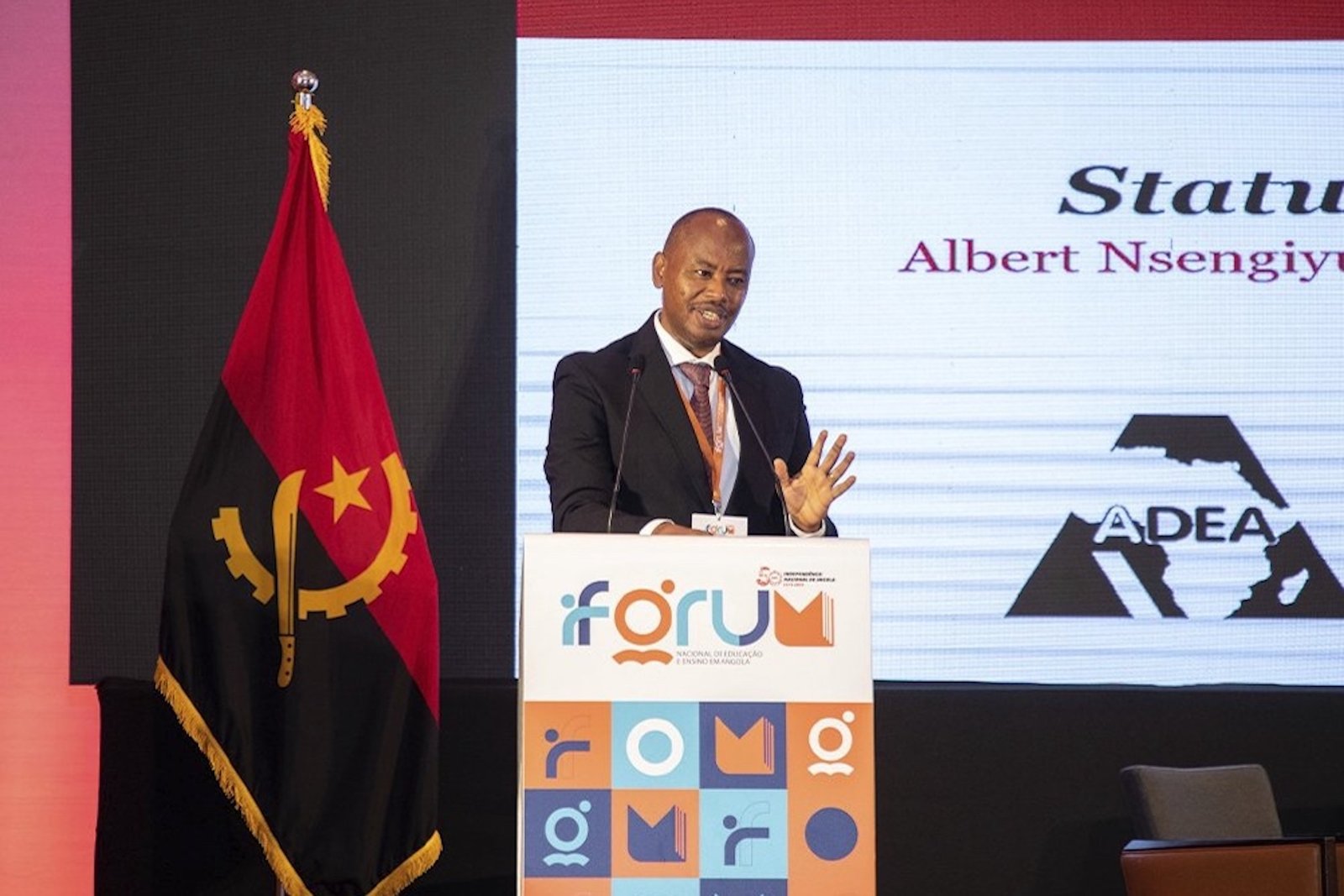ADEA calls for improved partnership and greater accountability by countries in education delivery

Luanda, Angola – February 2025
The Executive Secretary of the Association for the Development of Education in Africa (ADEA), Albert Nsengiyumva, delivered a powerful message to stakeholders at the Angola National Education Stakeholders Forum in Luanda on Thursday 20th February. He urged African nations to take ownership of their education agendas amid shifting dynamics in global aid. In his presentation, Albert highlighted key areas for reform and outlined a roadmap to improve learning outcomes across the continent.
He equally emphasized Africa’s commitment to ending learning poverty, aligning with the Ministerial Declaration for Action made at the 2024 Africa Foundational Learning Exchange (FLEX 2024) in Kigali, Rwanda. The Executive Secretary called on governments, policymakers, and education stakeholders to integrate key continental and regional education blueprints into national frameworks.
“We must embrace partnerships because our activities are globally connected. However, beyond collaboration, we must enhance resource management and accountability. Recent events have demonstrated that aid is ending, making it imperative for us to manage our resources efficiently and deliver quality learning outcomes,”
Albert stated.
The forum aimed to enable policymakers and stakeholders to assess Angola’s educational system in response to evolving skills demands and the drive to end learning poverty. Discussions focused on overcoming obstacles to implementing the recently endorsed Continental Education Strategy for Africa 2026-2035 (CESA 26-35) and contributing to the achievement of Sustainable Development Goal 4 (SDG 4) on education, while advancing Angola’s new social pact for education. Participants shared insights on effective teaching and learning strategies and identified avenues for policy reform.
Some key takeaways from Albert’s session include:
- Strengthening data and evidence capabilities for informed policy and decision-making.
- Leveraging EdTech, AI, and digital learning models to bridge educational gaps.
- Enhancing teacher education, career development, and funding to improve the profession’s attractiveness and effectiveness.
- Adopting holistic approaches to eliminate barriers preventing marginalized communities from accessing quality education.
- Creating alternative learning pathways to support out-of-school children and ensure no learner is left behind.
As Angola and other African nations advance their education goals under CESA 26-35, this event reaffirmed ADEA’s commitment to empower member countries to transform schooling into meaningful learning through demand-driven and innovative policy approaches, research, strategic partnerships, and knowledge-sharing.
The forum held at the Intercontinental Hotel Luanda convened key national and international stakeholders. It served as a platform to develop actionable strategies for transforming Africa’s educational landscape. The event also formed part of Angola’s 50th Independence Anniversary celebrations.
ADEA's participation in this forum is part of its broader continental engagement efforts, mobilizing countries around the continent’s Decade of Commitment to End Learning Poverty. Through these engagements, ADEA actively fosters country participation in ongoing and upcoming education initiatives, promoting sustainable education transformation across Africa.
More photos available here.